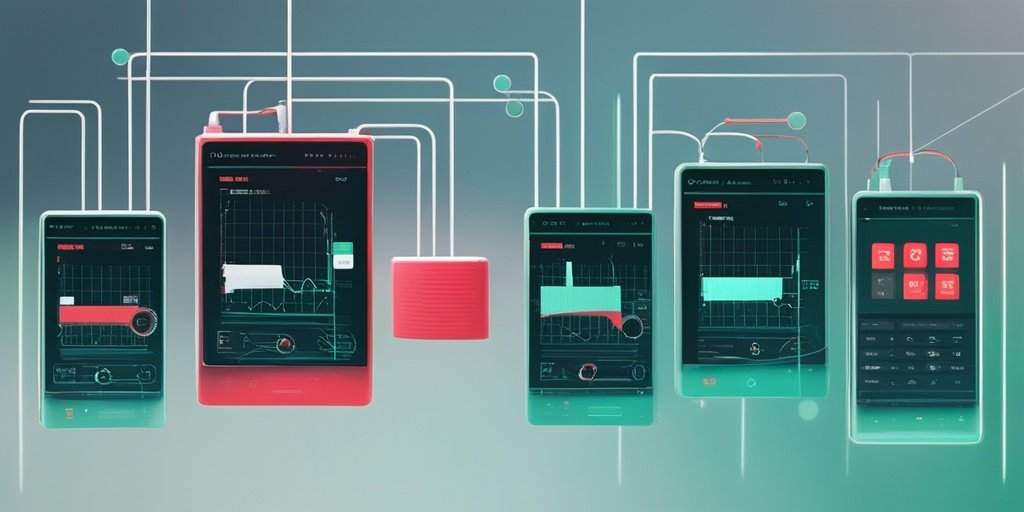⚡ Quick Summary
This study introduces a novel algorithm utilizing multi-agent deep reinforcement learning (DRL) for dynamic task offloading in a Device-to-Device Mobile-Edge Computing (D2D-MEC) network. The proposed method significantly reduces the average task completion delay by 11.0% and the ratio of dropped tasks by 17.0% compared to existing approaches.
🔍 Key Details
- 📊 Focus: Dynamic task offloading in D2D-MEC networks
- ⚙️ Technology: Multi-agent deep reinforcement learning (MAPPO)
- 🏆 Performance Metrics: 11.0% reduction in average task delay, 17.0% reduction in dropped tasks
- 📅 Deadline Constraints: Addressing delay-sensitive tasks
🔑 Key Takeaways
- 📡 D2D technology enhances resource utilization by enabling direct task offloading between mobile devices.
- 💡 The proposed algorithm employs a dynamic partitioning scheme for active and idle devices.
- 🤖 Multi-agent DRL effectively addresses the challenges of large action spaces and time-slot coupling.
- 📈 Simulation results demonstrate the algorithm’s efficiency and fast convergence.
- 🌐 Relevant applications include sensor networks generating large volumes of data requiring timely processing.
- 🔄 Centralized training with decentralized execution (CTDE) allows for localized decision-making by each mobile device.
- 📉 The study highlights the importance of minimizing task delays to meet service-level agreements (SLAs).

📚 Background
The rise of Device-to-Device (D2D) communication is transforming the landscape of mobile networks, enabling direct interactions between mobile devices (MDs). This technology is crucial for optimizing resource utilization, particularly in scenarios where devices can offload tasks to one another. However, existing methods often fall short in efficiently managing task delays, especially under stringent deadline constraints.
🗒️ Study
The research conducted by He et al. focuses on developing a dynamic task offloading algorithm for D2D-MEC systems. By leveraging multi-agent deep reinforcement learning, the study formulates a task offloading optimization problem using a queue-based system. The innovative approach includes a dynamic partitioning scheme that accounts for the stochastic nature of task arrivals and the execution of tasks across multiple time slots.
📈 Results
The proposed algorithm outperformed traditional single-agent DRL methods, achieving a 11.0% reduction in average task completion delay and a 17.0% decrease in the ratio of dropped tasks. These results underscore the effectiveness of the multi-agent approach in managing complex task offloading scenarios within D2D-MEC networks.
🌍 Impact and Implications
The findings of this study have significant implications for the future of mobile computing, particularly in sensor networks where timely data processing is critical. By minimizing task delays, the proposed algorithm enhances the overall quality of experience (QoE) for users and ensures compliance with service-level agreements (SLAs) for delay-sensitive applications. This advancement could pave the way for more efficient and responsive mobile networks.
🔮 Conclusion
This research highlights the transformative potential of multi-agent deep reinforcement learning in optimizing task offloading within D2D-MEC networks. By addressing the challenges of task delays and resource allocation, the proposed algorithm not only improves performance metrics but also sets the stage for future innovations in mobile-edge computing. Continued exploration in this area is essential for harnessing the full capabilities of next-generation communication technologies.
💬 Your comments
What are your thoughts on the advancements in task offloading technologies? We invite you to share your insights and engage in a discussion! 💬 Leave your comments below or connect with us on social media:
Multi-Agent Deep Reinforcement Learning Based Dynamic Task Offloading in a Device-to-Device Mobile-Edge Computing Network to Minimize Average Task Delay with Deadline Constraints.
Abstract
Device-to-device (D2D) is a pivotal technology in the next generation of communication, allowing for direct task offloading between mobile devices (MDs) to improve the efficient utilization of idle resources. This paper proposes a novel algorithm for dynamic task offloading between the active MDs and the idle MDs in a D2D-MEC (mobile edge computing) system by deploying multi-agent deep reinforcement learning (DRL) to minimize the long-term average delay of delay-sensitive tasks under deadline constraints. Our core innovation is a dynamic partitioning scheme for idle and active devices in the D2D-MEC system, accounting for stochastic task arrivals and multi-time-slot task execution, which has been insufficiently explored in the existing literature. We adopt a queue-based system to formulate a dynamic task offloading optimization problem. To address the challenges of large action space and the coupling of actions across time slots, we model the problem as a Markov decision process (MDP) and perform multi-agent DRL through multi-agent proximal policy optimization (MAPPO). We employ a centralized training with decentralized execution (CTDE) framework to enable each MD to make offloading decisions solely based on its local system state. Extensive simulations demonstrate the efficiency and fast convergence of our algorithm. In comparison to the existing sub-optimal results deploying single-agent DRL, our algorithm reduces the average task completion delay by 11.0% and the ratio of dropped tasks by 17.0%. Our proposed algorithm is particularly pertinent to sensor networks, where mobile devices equipped with sensors generate a substantial volume of data that requires timely processing to ensure quality of experience (QoE) and meet the service-level agreements (SLAs) of delay-sensitive applications.
Author: [‘He H’, ‘Yang X’, ‘Mi X’, ‘Shen H’, ‘Liao X’]
Journal: Sensors (Basel)
Citation: He H, et al. Multi-Agent Deep Reinforcement Learning Based Dynamic Task Offloading in a Device-to-Device Mobile-Edge Computing Network to Minimize Average Task Delay with Deadline Constraints. Multi-Agent Deep Reinforcement Learning Based Dynamic Task Offloading in a Device-to-Device Mobile-Edge Computing Network to Minimize Average Task Delay with Deadline Constraints. 2024; 24:(unknown pages). doi: 10.3390/s24165141